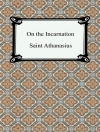When the revolutionary technology of photography erupted in American culture in 1839, it swiftly became, in the day’s parlance, a “mania.” This richly illustrated book positions vernacular photography at the center of the study of nineteenth-century American religious life. As an empirical tool, photography captured many of the signal scenes of American life, from the gold rush to the bloody battlefields of the Civil War. But photographs did not simply display neutral records of people, places, and things; rather, commonplace photographs became inscribed with spiritual meaning, disclosing, not merely signifying, a power that lay beyond.
Rachel Mc Bride Lindsey demonstrates that what people beheld when they looked at a photograph had as much to do with what lay outside the frame — theological expectations, for example — as with what the camera had recorded. Whether studio portraits tucked into Bibles, postmortem portraits with locks of hair attached, “spirit” photography, stereographs of the Holy Land, or magic lanterns used in biblical instruction, photographs were curated, beheld, displayed, and valued as physical artifacts that functioned both as relics and as icons of religious practice. Lindsey’s interpretation of “vernacular” as an analytic introduces a way to consider anew the cultural, social, and material reach of religion.
A multimedia collaboration with MAVCOR—Center for the Study of Material & Visual Cultures of Religion—at Yale University.
عن المؤلف
Rachel Mc Bride Lindsey is assistant professor of American religious history and culture in the Department of Theological Studies at Saint Louis University.







![غلاف Brian Schrag & Julisa Rowe: Community Arts for God's Purposes [Chinese] 貼近神心意的社群藝術 غلاف Brian Schrag & Julisa Rowe: Community Arts for God's Purposes [Chinese] 貼近神心意的社群藝術](https://static.worldofdigitals.com/thumb_webp/740/9781645083740.webp)




